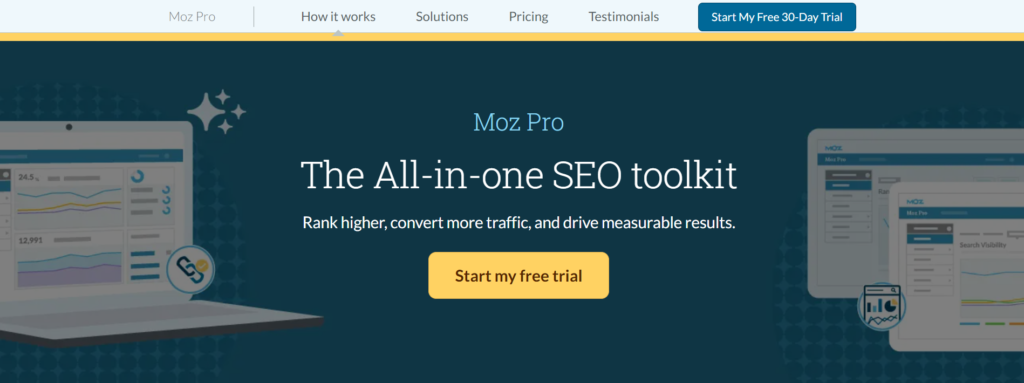While identifying relevant keywords is crucial, the real power lies in understanding their relationships. Keyword grouping tools unlock this power by automatically grouping your keywords based on meaning and search intent, empowering you to create targeted content that resonates with your audience and climbs the search engine rankings.
Imagine you’re a prospector panning for gold. Individual keywords are like gold flakes, valuable but scattered. Keyword grouping tools act like a sluice, efficiently sorting and organizing your keywords by theme. This allows you to see the bigger picture and uncover hidden content opportunities.

Manually grouping keywords can be time-consuming and subjective. Keyword clustering tools, however, utilize advanced algorithms to group keywords based on meaning and search intent. This empowers you to create targeted content clusters that resonate with your audience and boost your SEO performance. Let’s explore the top keyword clustering tools and how they can help you find your content goldmine!
1. SE Ranking Keyword Grouper: Effortless Keyword Organization

Feeling overwhelmed by a scattered list of keywords? SE Ranking Keyword Grouper simplifies your workflow. This tool uses search engine results to automatically group your keywords by theme, saving you time and effort. Here’s what it offers:
SE Ranking Keyword Grouper Features :
- Automatic Grouping: No need for manual sorting. SE Ranking Keyword Grouper analyzes top search results to categorize your keywords into relevant clusters.
- Improved Content Planning: Identify hidden content topics within your keyword lists, unlocking opportunities to create highly targeted content that speaks directly to your audience’s needs and interests.
- Streamlined On-Page Optimization: Grouped keywords provide insights into how to distribute them effectively across your website pages.
SE Ranking Keyword Grouper integrates with their other SEO tools, allowing for a seamless workflow within their platform
SE Ranking pricing :
Essential plan – $55/mo
Pro plan – $109/mo
Business plan – $239/mo
2. Surfer SEO Keyword Clustering: Build Content Clusters with Confidence

Surfer Keyword Clustering goes beyond simple keyword grouping. It utilizes machine learning to analyze search results and user intent, building comprehensive content clusters around your chosen seed keyword. Here’s the breakdown:
Surfer Keyword Clustering Features :
- Data-Driven Clustering: Surfer’s algorithm goes beyond basic keyword matching, ensuring your clusters are truly thematically linked.
- Content Gap Identification: Uncover hidden content opportunities by pinpointing missing topics within your chosen cluster.
- Content Planning Made Easy: Generate a content plan based on your keyword clusters, streamlining your content creation process.
Surfer integrates seamlessly with their SEO audit and content editor tools, allowing you to optimize your content directly within their platform.
Surfer SEO pricing :
Essential plan – $89/mo
Scale plan – $129/mo
Scale Ai plan – $219/mo
Enterprise plan – Contact Surfer Team
3. Moz Keyword Explorer: Powerful Insights for Keyword Grouping

While Moz Keyword Explorer doesn’t offer dedicated keyword clustering functionality, it provides powerful tools to help you group keywords strategically. Here’s how:
Moz Keyword Explorer Features :
- Keyword Difficulty Score: Gauge competition for each keyword, allowing you to prioritize easier-to-rank keywords within your chosen group.
- Organic CTR (Click-Through Rate) Estimates: Get insights into potential click-through rates for grouped keywords, helping you focus on those likely to drive traffic.
- SERP Analysis Features: Analyze top search results for your keywords, providing clues on how best to structure and optimize your content for each group.
Moz Keyword Explorer integrates with other Moz SEO tools, offering a comprehensive suite for keyword research and content optimization.
Moz pricing :
Standard plan – $99/mo
Medium plan – $179/mo
Large plan – $299/mo
Premium plan – $599/mo
4. Ahrefs Keyword Tool: Group Keywords with Competitor Insights

Ahrefs Keyword Tool, while not solely focused on clustering, empowers you to group keywords strategically using competitor research data. Here’s what it offers:
Ahrefs Keyword Tool Features :
- Content Gap Analysis: Discover keywords your competitors rank for but you don’t, helping you identify potential content cluster themes.
- Keyword Difficulty Score: Ahrefs’ KD metric lets you prioritize keywords within your group based on competition level.
- Search Volume Estimates: Gauge potential traffic for grouped keywords, aiding in content planning and resource allocation.
Ahrefs Keyword Tool integrates with their extensive SEO suite, providing powerful tools for competitor analysis, backlink research, and overall content strategy.
Ahrefs pricing :
Lite plan – $129/mo
Standard plan – $249/mo
Advanced plan – $449/mo
Enterprise plan – $14,990 (Annual contract only)
5. SEMrush Keyword Magic Tool: Group by Topic & Track Trends

SEMrush Keyword Magic Tool offers keyword grouping alongside valuable trend data, helping you create future-proof content clusters. Here’s the breakdown:
SEMrush Keyword Magic Tool Features :
- Topic-Based Grouping: SEMrush groups keywords by relevant topics, ensuring your clusters are thematically focused.
- Keyword Trend Tracking: Monitor search volume trends over time, allowing you to prioritize rising keywords within your groups.
- Organic Search Positions: Track your website’s ranking for grouped keywords, providing insights into content performance.
SEMrush Keyword Magic Tool integrates with their robust SEO platform, offering tools for competitor research, on-page optimization, and rank tracking.
SEMrush pricing :
Pro plan – $129.95/mo
Guru plan – $249.95/mo
Business plan – $499.95/mo
Choosing the Right Keyword Grouping Tool for You
The ideal keyword grouping tool depends on your specific needs and budget. Here are some key factors :
- Budget: Freemium options like Moz Keyword Explorer offer basic grouping functionalities, while paid tools like Surfer and SEMrush provide more advanced features.
- Keyword List Size: If you manage a large list of keywords, consider tools with bulk upload capabilities like SE Ranking Keyword Grouper.
- Desired Features: Prioritize features that align with your workflow. Need competitor insights? Ahrefs Keyword Tool might be ideal. Value data-driven clustering? Surfer could be a good fit.
Don’t be afraid to experiment! Many tools offer free trials, allowing you to test-drive their features and see which one best suits your needs.
Conclusion:
Keyword grouping tools are a game-changer for SEO content creation. By organizing your keywords into thematically linked clusters, you can:
- Craft targeted content: Cater to specific user search intents and improve content relevance.
- Boost SEO performance: Optimize your website pages for relevant keyword groups, leading to higher rankings.
- Streamline content planning: Identify gaps and hidden content opportunities within your clusters.
Remember, the right keyword grouping tool empowers you to unlock your content goldmine! Explore the options we’ve discussed, consider your specific needs, and find the tool that optimizes your keyword research and content creation workflow.
FAQs :
What are keyword grouping tools?
These tools analyze your keywords and group them by theme, helping you create targeted content clusters.
Why use keyword grouping tools?
• Saves time by organizing your keywords.
• Helps identify hidden content topics.
• Improves SEO by allowing you to target relevant keyword groups.
What factors should I consider when choosing a keyword grouping tool?
• Budget: Freemium vs. Paid options
• Keyword list size: Consider bulk upload capabilities
• Desired features: Competitor research, data visualization, etc.
What are some benefits of using keyword clustering?
• Streamlined content planning
• Improved content relevance for user search intent
• Boosted SEO performance through targeted optimization
What’s the difference between keyword research and keyword grouping?
Keyword research involves finding relevant keywords, while keyword grouping organizes those keywords into thematically linked clusters.